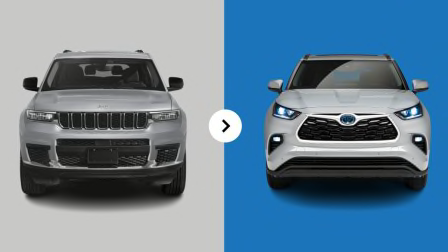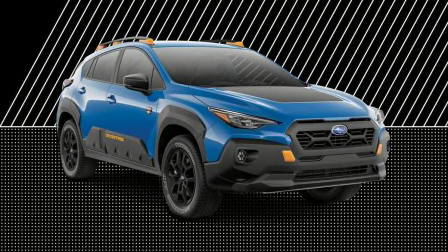Who Makes the Most Reliable New Cars?
CR ranks the brands and reveals how their new models are likely to hold up

Lexus, Toyota, and Mini are the three most reliable brands in this year’s annual auto reliability brand rankings, with the two Japanese brands swapping spaces from last year. The automaker Honda follows, with its luxury Acura brand coming in fourth and the mainstream Honda brand rounding out the top five. Scroll down to see a full comparison of how brands compare using our interactive tool.
In This Article: How We Score Reliability • How the Regions Compare • Hybrids Up, EVs Down
We had insufficient data to create brand rankings for Alfa Romeo, Fiat, Jaguar, Land Rover, Lucid, Maserati, Mitsubishi, and Polestar.
How We Score Reliability
Every year CR asks its members about problems they’ve had with their vehicles in the previous 12 months. This year we gathered data on over 330,000 vehicles, from the 2000 to 2023 model years, with a few early-introduced 2024 model years.
We study 20 trouble areas, from nuisances—such as squeaky brakes and broken interior trim—to major bummers, such as potentially expensive out-of-warranty engine, transmission, EV battery, and EV charging problems. We use that information to give reliability ratings for every major mainstream model.
We weigh the severity of each type of problem to create a predicted reliability score for each vehicle, from 1 to 100. We use that information to give reliability ratings for every major mainstream vehicle. (The reliability rating is then combined with data collected from our track testing, as well as our owner satisfaction survey results and safety data, to calculate each test vehicle’s Overall Score.)
This year we have addressed the rapidly growing number of electrified offerings that automakers are producing: hybrids, plug-in hybrids (PHEV), and electric vehicles (EV). As a result, we added three new trouble areas: electric motor, EV/hybrid battery, and EV charging:
• Internal Combustion Engine (ICE) vehicles have 17 potential trouble areas.
• EVs can have up to 12 trouble areas. Traditional ICE problems are not included, such as those with the engine and transmission.
• Hybrids have 19 potential trouble areas: 17 from ICE vehicles, as well as electric motor and EV battery.
• Plug-in electric vehicles (PHEVs) can experience all 20 trouble areas: 17 from ICE vehicles, as well as electric motor, EV battery, and EV charging.
See the Most Reliable Cars • Least Reliable Cars • CR’s Guide to Car Reliability
How the Regions Compare for Reliability
Asian automakers are still leading reliability by a wide margin with an overall reliability average score of 63 for the region, on a scale of 1 to 100. Seven of the 10 most reliable brands are from Asian automakers.
European automakers are in second place at 46, with three brands filling out the rest of the top 10 most reliable brands.
Domestic brands trail both with an average score of 39. Each domestic automaker had at least one model that had an average or better reliability ranking, and Buick’s entire lineup scored average or better.
Both the Ford Edge and Maverick scored above-average this year, while the Buick Encore GX, Cadillac XT5, Chevrolet Equinox, GMC Terrain, Lincoln Corsair, and Tesla Model 3 had high scores.
Cars, including sedans, hatchbacks, and wagons, remain the most reliable vehicle type, with an average reliability rating of 57 (on a scale of 0 to 100), followed by SUVs (50) and minivans (45). “Sedans have fallen out of favor with consumers, but as a class they are very reliable,” says Jake Fisher, senior director of auto testing at Consumer Reports. “They often have less of the latest technology and features that can cause problems before the bugs are worked out.” Pickup trucks come in last, with an average reliability rating of 41.
Hybrids Soar and EVs Still Struggle
There are interesting insights with the reliability of electrified models this year. Overall, hybrids have 26 percent fewer problems than cars powered by internal combustion engines (ICE). Some standouts include the Lexus UX and NX Hybrid and the Toyota Camry Hybrid, Highlander Hybrid, and RAV4 Hybrid.
Plug-in hybrid electric vehicles (PHEVs) are more of a mixed bag. As a category, they have 146 percent more problems than ICE vehicles. Several PHEVs are even less reliable than their conventional counterparts, such as the below-average Audi Q5 and Chrysler Pacifica. The latter has the lowest score in our survey, at 14.
Still, there are PHEVs that buck that trend, including standouts such as the Toyota RAV4 Prime and Kia Sportage, which score well above average. The BMW X5, Hyundai Tucson, and Ford Escape PHEVs earn average reliability scores.


Electric cars and electric SUVs don’t fare much better, with average reliability scores of 44 and 43, respectively. At the bottom of our vehicle-type rankings are electric pickup trucks, with an average score of 30.
As more EVs hit the marketplace and automakers build each model in greater numbers, we are seeing that some of them have problems with the EV drive system motors, EV charging systems, and EV batteries (which are different from the low-power 12-volt batteries that power accessories). Owners of the Ford F-150 Lightning and Mustang Mach-E, Genesis GV60, Hyundai Ioniq 5, Kia Niro EV and EV6, Subaru Solterra, Toyota bZ4X, and Volkswagen ID.4 all reported some of these issues.
Among the top five brands, Lexus has just one model, the NX, that scored average predicted reliability. All of its other models scored above-average or better reliability this year, led by the UX hybrid SUV.
A majority of Toyota models have above- or well-above-average reliability. The brand is topped by the 4Runner SUV, which is among the most reliable models in the survey. But the brand’s full-sized pickup truck, the Tundra, remains among the less reliable vehicles in the survey.
Acura’s RDX and TLX both have above-average reliability, while the brand’s two recently redesigned models, the MDX SUV and Integra sedan, come in at average.
Consumer Reports’ brand-level rankings are based on the average predicted reliability score for vehicles in the brand’s model lineup.
Here we present the rankings of brands based on their average reliability scores. We identify the most and least reliable model scores within each brand and list whether the brand’s rank went up or down based on their relative position from our last survey. This means we consider only those brands in both surveys that had sufficient data for two or more models.
For more details, go to CR’s Guide to Car Reliability.
Editor’s Note: This article also appeared in the January 2024 issue of Consumer Reports magazine.





















